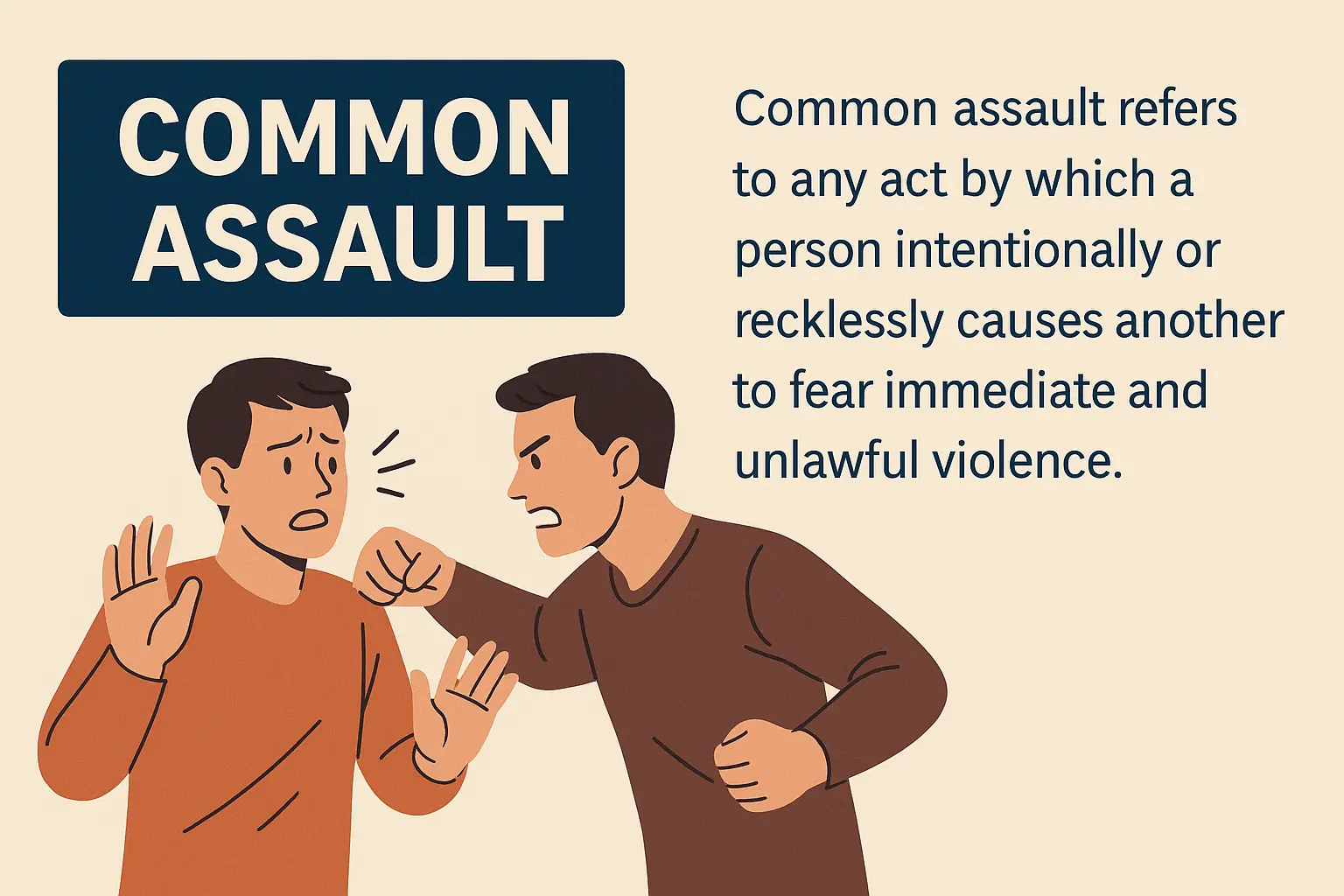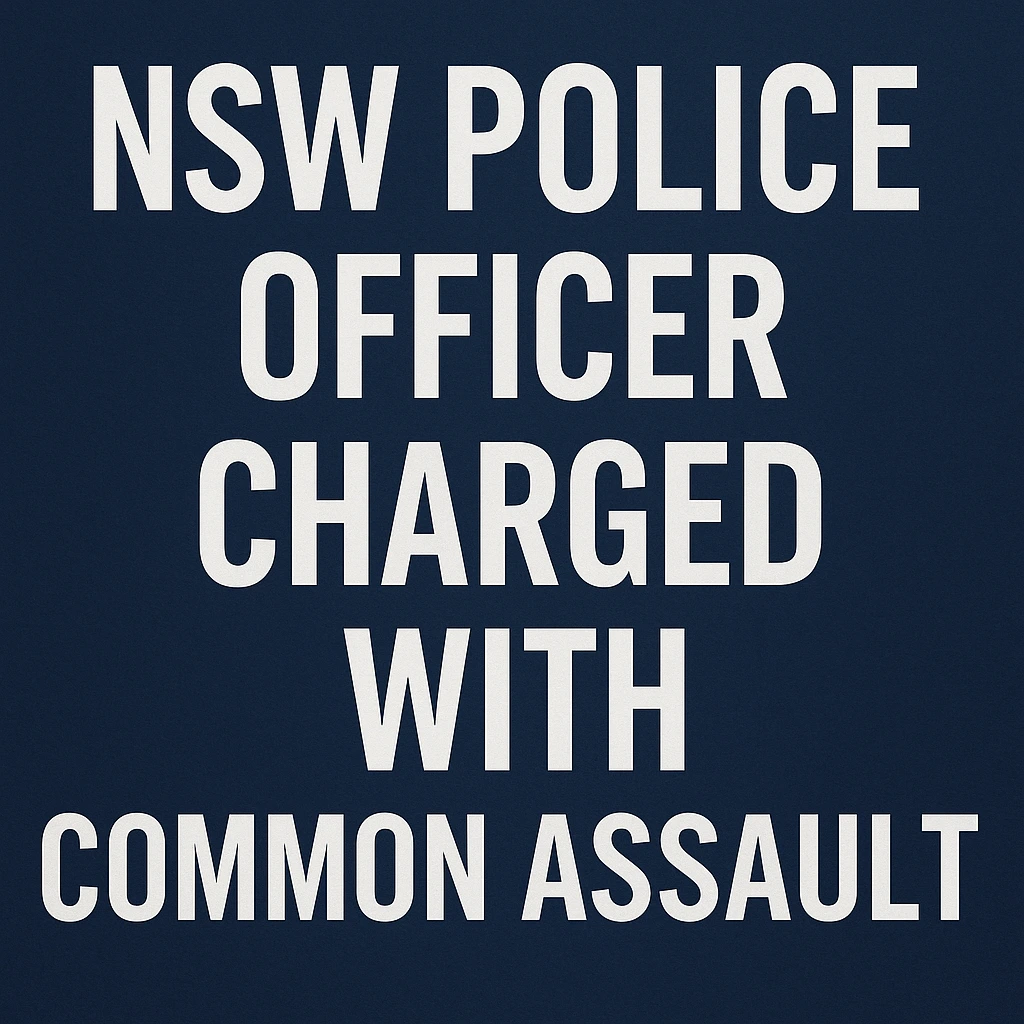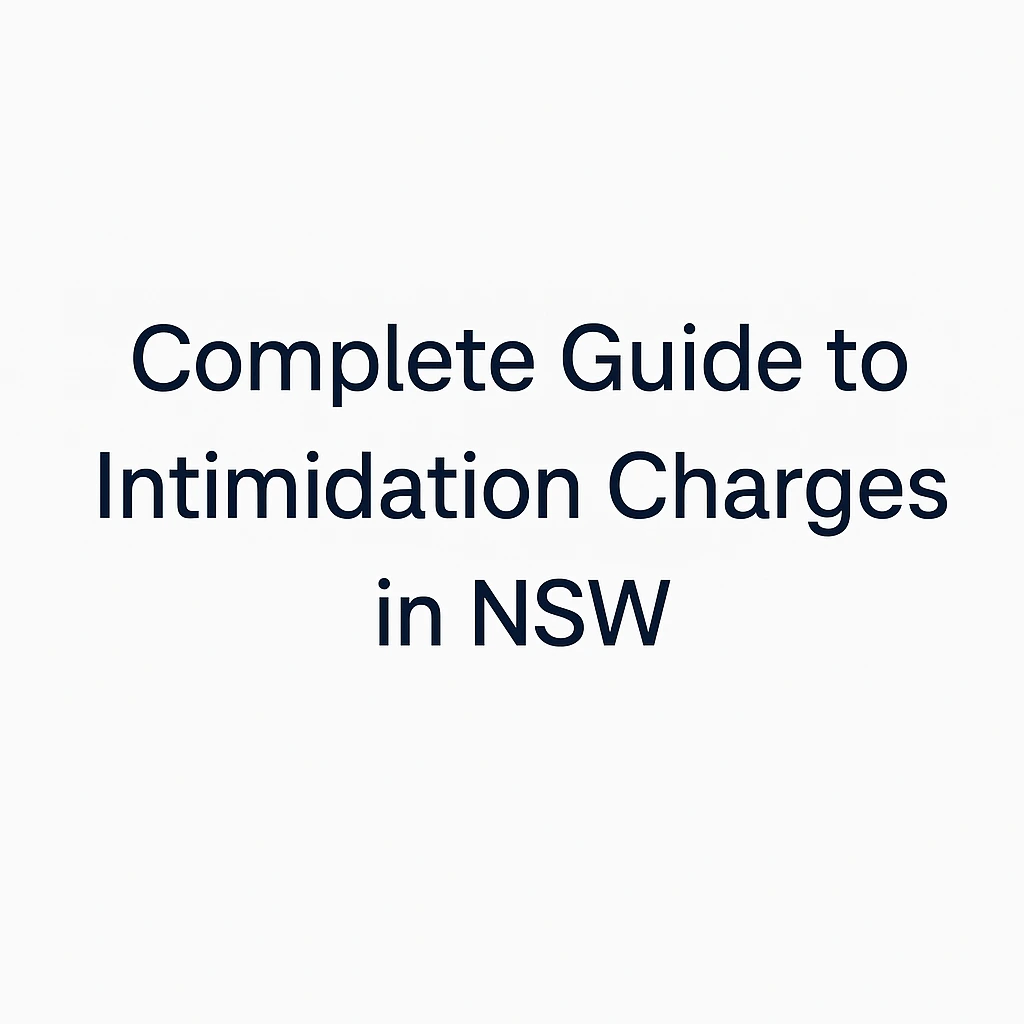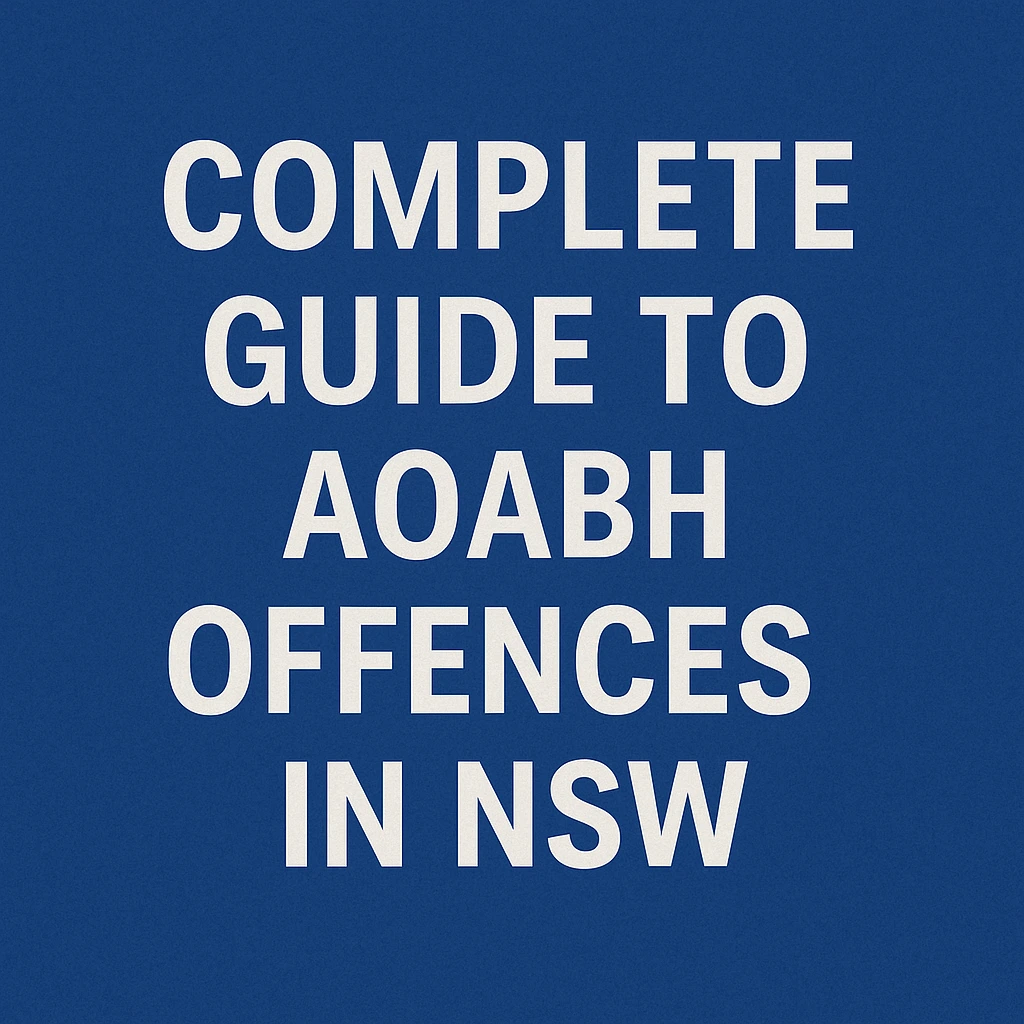A Common assault charge in NSW is one of the most common criminal charges. It includes any act or threat that causes another person to fear immediate unlawful violence. Even if it does not involve any injury, a finding of guilt can carry up to two years’ imprisonment. This article explains what common assault is under NSW law, outlines penalties and defences.
What is Common Assault NSW?
Examples of Common Assault
Common assault covers a wide range of actions. Examples include:
- Punching, slapping, kicking or pushing another person
- Raising a fist or making a menacing gesture toward someone
- Throwing an object at someone in anger, even if it does not hit them
- Spitting at another person as an act of aggression
- Grabbing or restraining someone without lawful reason
In all these cases, the conduct must be unlawful and done intentionally or recklessly . If the person consented (for example, a boxer in a fight) or if you genuinely believed you had the right to act (such as self-defence), then no assault has occurred. Also, if any injury is caused, the charge may be escalated to a more serious offence like Assault Occasioning Actual Bodily Harm.
What the Prosecution Must Prove
To secure a conviction, the prosecution must prove each element of common assault beyond reasonable doubt . In summary, they must show that you:
- Committed an act that applied force to, or threatened immediate violence against another person;
- Did so intentionally or recklessly;
- Acted without the other person’s consent ; and
- Had no lawful excuse for the conduct .
For example, if the alleged assault was a push or a slap, the prosecution must prove the contact was unlawful. If the charge is based on gestures, they must prove that the victim was actually placed in fear of immediate harm. If any element is not proved, the accused must be acquitted.
Common Assault Charges NSW
Common assault charges are typically dealt with in the Local Court of NSW before a Magistrate. The maximum penalty in Local Court is two years’ imprisonment and/or a fine of up to 20 penalty units . Although it is the least serious assault offence, a common assault charge is nonetheless serious.
A finding of guilt may lead to a recording of conviction which will remain in the person’s criminal record. Common assault charges often arise from incidents like bar fights, sporting scuffles or domestic disputes. If the incident occurs in a domestic setting, police also seek an Apprehended Domestic Violence Order (ADVO) to protect the other person. Our common assault lawyers are experienced in both assault and domestic violence matters, and we can advise you on how these issues interrelate.
Common assault NSW Penalty
If convicted of common assault, the court has a range of sentencing options. These include:
- Section 10 Dismissal: The court may find you guilty but still dismiss the charge without recording a conviction. The court may use this option for trivial offences or first-time offenders who demonstrate remorse.
- Conditional Release Orders: The court can order you to be of good behaviour for a period (often 1–2 years). A Conditional Release Order can be imposed with or without a conviction.
- A Fine
- Community Correction Order
- Intensive Correction Order
- Full time imprisonment
The specific sentence depends on factors such as the seriousness of the assault, whether the victim was vulnerable, and your own background. Courts also consider any mitigating circumstances – for example, if the assault was provoked. Overall, first-time offenders may receive more lenient outcomes.
Defences to Common Assault
There are several legal defences that may apply to a common assault charge. Key defences include:
- Self-Defence: If you reasonably believed it was necessary to use force to protect yourself or another, and the force was reasonable, this can justify the action.
- Accident or Lack of Intent: If the alleged act was accidental or you did not intend (and could not have foreseen) causing fear or harm, you may not be guilty of assault.
- Consent: If the other person consented to the act (for example, consensual boxing fight/training or contact sports), it is not assault.
- Duress: If you acted under a reasonable threat of harm to yourself or others, this may excuse the conduct.
A Criminal lawyer will examine all evidence to see which defence applies. We look for inconsistencies in witness statements or questions about whether the victim truly feared violence.
Why You Need a Criminal Lawyer
A common assault charge can affect your life for years to come, so early legal advice is crucial. AMA Legal are a team of dedicated criminal lawyers who offer experienced guidance through every step. We review the police evidence and challenge any weaknesses in the prosecution’s case. We also advise you on the plea and work to achieve the most favourable outcome – whether that is having the charge dropped, obtaining an acquittal, or securing a lenient sentence. Contact us today for expert help.
Frequently Asked Questions
Question: What is common assault NSW?
Answer: Common assault occurs when someone intentionally or recklessly causes another person to apprehend immediate unlawful violence . It can involve physical contact (like a slap or push) or an action (like raising a fist) with no actual contact.
Question: How serious is a common assault charge?
Answer: NSW law considers common assault as one of the less severe types of assaults, but it can still carry serious consequences. It carries a maximum penalty of 2 years imprisonment. The seriousness of the charge depends on the circumstances of the allegation such as whether it involved physical contact, if it was part of a domestic violence allegation, and the defendant’s prior criminal history.
Question: What is the sentence for common assault?
Answer: The sentence for common assault in NSW can vary widely depending on the circumstances of the offence, the seriousness of the conduct, and the offender’s criminal history. The maximum penalty is 2 years imprisonment under Section 61 of the Crimes Act 1900. Possible sentencing outcomes include:
Section 10 dismissal (no conviction recorded)
Conditional Release Order (CRO)
Fines
Community Correction Orders (CCO)
Intensive Correction Orders (ICO)
Full-time imprisonment (in more serious cases)
The court will consider factors such as intent, harm caused, remorse, and any steps taken towards rehabilitation when determining the appropriate sentence.
If police have charged you with common assault, call a common assault lawyer on (02) 8610 3764.





